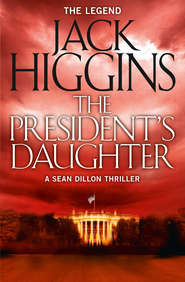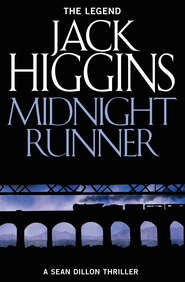По всем вопросам обращайтесь на: info@litportal.ru
(©) 2003-2024.
✖
World War 2 Thriller Collection: Winter, The Eagle Has Flown, South by Java Head
Настройки чтения
Размер шрифта
Высота строк
Поля
It was only after the Essers had gone that the two children were scolded. Who would pay for the boat? How did they come to fall overboard? Didn’t they see that a storm was coming up? How could they not come directly home after being rescued? All three women asked them more or less the same questions; only the manner of asking was different. First came the regimental coldness of Omi’s interrogation, then the operatic hysteria of Mama’s, and finally that of their Scots nanny, who, after their hot bath with carbolic soap, put them under the cold shower and towelled them until their skin was pink and sore.
The children took their chastisings meekly. They knew that such anger was just one of many curious ways in which grownups manifested their love. And they’d long ago learned how to wear a look of contrition while thinking of other things.
Now that they no longer had the Valhalla, the children spent their days on the beach. They walked back along the coast road to Fritz Esser’s boathouse. Very early each morning, Esser went out in his boat to fish. He caught little: he had neither tempting bait, good nets, nor the skills and patience of the successful fisherman.
The boys always arrived in time to welcome him back. But Fritz never showed any disappointment when his long hours of work had provided nothing in return. He was always able to manage the crooked smile that revealed a wide mouth crowded with teeth. Every day, of course, the children hoped to see him towing the Valhalla back to them. And each day their hopes diminished, until finally they went to Fritz just for something to do.
Despite the disparity in age, Fritz Esser enjoyed the company of the two children. He let them help him with painting and repairing the boats he was paid to look after. He showed them how to sew up torn sails and caulk the seams of boats that belonged to holidaymakers who’d left them too long out of the water. And all the time he lectured them with the political ideas that came from the booklets he read and the conversations he liked to listen to in the bar of the Golden Pheasant on the Travemünde road, and to the words of his hero Karl Liebknecht.
At the back of the Golden Pheasant there was a big room that was used for weddings and christenings and meetings of the SPD. That was where, last year, Fritz had listened enraptured to the fiery little Karl Liebknecht. In his pince-nez, neatly shaped black moustache, well-brushed black suit and high, stiff collar, this thirty-nine-year-old member of the Prussian Diet looked more like a clerk than a revolutionary, but from his very first words his speech revealed his passions. He denounced the international armaments industry, ‘the clique who mint gold from discord’. He denounced the Kaiser and Bendlerstrasse, where the generals ‘at this very moment are planning the next war’. He denounced the Russian Tsar and all the ‘parasites’ that made up Europe’s royal families. He denounced the capitalists who owned the factories and the police who were their lackeys. He denounced the rich for exploiting their riches and the poor for enduring their poverty.
A big crowd filled the Golden Pheasant that Friday evening. Most of them had come because he was the son of the great Wilhelm Liebknecht (close friend of Karl Marx and a leader of the short-lived revolutionary republic of Baden), not because they wanted to hear this arrogant and unattractive man, whose only notable achievement so far was to have served an eighteen-month prison sentence for treason.
Karl Liebknecht had none of the qualities that a successful orator must have. His clothes made him look more like one of the cold-eyed bureaucrats they all feared and detested than like a man who would lead them to the golden land they were looking for. His educated Hochdeutsch and his manner – urban if not urbane – set him apart from this audience of fishermen and agricultural workers. Liebknecht’s message didn’t appeal to men who were looking for immediate improvement in their working conditions rather than an ultimate world revolution.
Only the very young have time enough for the sort of promises that Karl Liebknecht gave his audience that night. And only a few local youngsters like Fritz Esser were moved by this strange man.
Although the Winter boys had only a hazy idea of what it was all about, something of the excitement that Fritz Esser showed was communicated to them. And Fritz liked striding up and down declaiming the principles of Marxism to this enraptured audience of two. Pauli loved the sounds of Esser’s words, though the fiery rhetoric of hatred held no meaning for him. Peter sensed the underlying belligerence, but Fritz Esser’s flashes of easy humour and his simple charm won him over. And when Esser told them that as fellow conspirators they mustn’t repeat a word of what he said to the policeman, to their family, to any of their household, or even to anyone else in the village in case Fritz was sent to prison, the two boys were totally devoted to him. What a wonderful thing it was to share a secret with a boy who was almost a man. And what a secret it was!
During the final week of their summer vacation, ‘Uncle Glenn’ arrived. Veronica’s younger brother, Glenn Rensselaer, had a habit of turning up unexpectedly all over the world. The first Veronica heard about his visit to Europe was a telegram from the post office of a liner due to arrive at Hamburg next day: ‘Arriving Thursday with friend. Love, Glenn.’ There was a flurry of domestic preparations and for Veronica, speculation, too. Who was the friend and was this just Glenn’s jocular way of announcing that he had come to Europe on his honeymoon?
The speculation ended when Glenn arrived Friday noon, together with an Englishman named Alan Piper. They’d met on the ship coming over from New York: ‘The Kaiserin Auguste Victoria: twenty-five thousand tons. The biggest liner in the world and she’s German.’ It was typical of Glenn that he delighted in the achievements of the Old World almost as much as those of his own countrymen. Glenn had insisted that, since Piper had a month or two to spare before reporting back to the Colonial Office in London, he should accompany him on his tour of Germany, beginning at the house in Travemünde.
Alan ‘Boy’ Piper spent much of his time apologizing for all the extra work and trouble he was causing to the household. He apologized to Veronica so many times that Glenn finally said, ‘Don’t be so goddamned British. They have slaves to do all the work in this country. And Veronica loves a chance to speak a civilized language.’
He was right about his sister. Her mother-in-law had not been well for a few days and was allowed only bread and beef broth, having it served in her upstairs room. So Veronica played hostess to the unexpected house guests, and there was no need to speak anything but English.
Veronica adored her young brother but she was also enchanted by the shy Englishman. He was a little older than Veronica, an unconventionally handsome man with short brown – almost gingerish – hair, a lean bony face, and curiously youthful features that had long ago earned him his nickname ‘Boy’. He insisted that his life had been uneventful compared with her brother’s. From Merton College, Oxford, he’d gone to South Africa, and stayed there working as a colonial government official, although, as Glenn pointed out, he’d been there right through some of the bloodiest encounters of the Boer War.
‘He’s a soldier of fortune, like me,’ said Glenn Rensselaer.
‘Nothing as exciting as that, I’m afraid,’ said Piper modestly. ‘My father was a government official in Africa, and so far I have simply followed in his footsteps.’ He smiled. He had the face of a youngster – fresh and optimistic, and unwrinkled despite the African sun.
‘So what are you doing in Germany, Mr Piper?’ said Veronica. She took care to address him as ‘Mr Piper’, and yet there was a mocking note in her voice that some might have said was flirtatious. ‘Is it another excursion among the natives?’
‘Indeed not, Mrs Winter. I’m on leave. This visit to Germany, as delightful as it is already proving to be, was quite unplanned. When I returned to London to start this year’s leave of absence, I was very disappointed to learn that I would not be returning to Africa. The two Boer Republics we fought, and the Cape and Natal, become what is to be called the Union of South Africa. I would like to have been there to see it.’
‘South Africa’s loss is our gain,’ said Glenn.
‘I will drink to that,’ said Veronica.
The Englishman picked up his glass, looked at her and saw those wonderful smoky-grey eyes, and, after a fleeting moment, smiled.
Veronica looked down as she drank her wine, and yet she could feel the Englishman’s eyes upon her and despite herself, she shivered.
‘My life has not been nearly so colourful as your brother’s, Mrs Winter. I believe him to be one of the most extraordinary men I’ve ever met.’
‘Really?’ She was pleased to look at her brother and smile. ‘What have you been up to, Glenn?’
Piper answered for him. ‘He’s been everywhere and done everything. He’s even panned for gold on the Klondike.’
‘And a lot of good it did me: I finally sold out my claims for three hundred dollars and some supplies.’
‘He’s worked for Henry Ford and turned down a job with the U.S. Army team that surveyed the Panama Canal. He’s broken horses, repaired automobiles, and even flown an aeroplane.’
‘An airplane?’ said Veronica; even she could still be surprised by Glenn’s doings.
‘Just the once,’ said Glenn. He bent forward and forked some more cold pork, without waiting for the table maid to offer it, trying to cover his embarrassment at Piper’s laudatory remarks. Having swallowed it, he took a sip of wine and wiped his lips. ‘There was a guy on the ship coming over, a rancher. I’d worked for him a couple of times. He spent half the voyage filling Boy’s head with tales about me. You know how Texans like to spin a yarn to a Limey.’
‘And why exactly are you in Germany, Glenn?’ she asked her brother.
‘Dad told me that your husband knows Count Zeppelin. I was hoping he’d arrange an introduction for me.’
‘Count Zeppelin? Is he so famous that they’ve heard of him back home?’
‘They’ve sure heard of his airships,’ said Glenn. ‘Last September there was some kind of air show in Berlin….’
‘Yes,’ said Veronica. ‘Berliner Flugwoche at Johannisthal. There was a prize of one hundred and fifty thousand marks. Harald took the boys. They were there when an airplane flew from Tempelhof to Johannisthal: ten kilometres!’
‘Orville Wright was in Berlin at that time. And down in Frankfurt they had an airship meet: the Internationale Luftschiffahrt Ausstellung.’ He pronounced the German words with difficulty. ‘And suddenly a lot of people are taking a new interest in airships: especially big rigid airships. I want to see one of them, fly in one and find out what they’re like to handle.’
‘But surely you heard – the latest one, Deutschland, only lasted a couple of weeks. It’s a complete wreck. There were amazing pictures in the newspapers.’
‘Oh, sure LZ7: I know about that. But he still has the LZ6 flying, and a trip in that will suit me fine.’
Veronica turned to the Englishman. ‘And you, Mr Piper, do you share this obsession with flying machines that seems to be sweeping the world?’
‘Up to a point, Mrs Winter.’
‘He’s just being polite,’ said her brother. ‘I talked him into coming with me to see the zeps, because he can speak the lingo. I can’t speak German, and I don’t suppose Count von Zeppelin is going to be able to speak English.’
‘You’d better learn not to call him Count von Zeppelin: von Zeppelin or Count Zeppelin, but not both together.’
‘Is that so?’ said Glenn thoughtfully. ‘I know these Europeans get darn mad if you get their titles wrong. There was an Italian countess I once met in Mexico City. She wanted me to…’ He stopped, having suddenly decided not to go into detail.
Veronica laughed. She realized that the account of Glenn’s colourful experiences with horses, motorcars and canals had been carefully edited in order not to offend her.
‘And so you speak German, Mr Piper?’ she asked as the servants cleared the plates.
‘For my work I had to learn some Cape Dutch, Mrs Winter. It seemed foolish not to persevere with my German.’
‘He reads the kind of intellectual stuff you like, Veronica. I offered him my brand-new copy of Lord Jim when he was sitting alongside me on the promenade deck. And darn me if he didn’t wave it away. He said he doesn’t read Conrad because he doesn’t stretch the mind. I felt like punching him in the ear. That’s how we first got talking.’
Piper – even after his three months’ stay in America – had still not got used to this direct style of speaking. ‘I didn’t exactly say that, Glenn…’
‘He’s reading Das Stunden-Buch in German!’ added Glenn Rensselaer. ‘It took me half an hour to learn how to pronounce the title.’ Veronica noticed the mutual regard of the two men; somehow friendships between women didn’t flourish so easily and quickly.
‘I’m afraid that Rilke is too much for me,’ Piper admitted. ‘All that symbolic imagery requires a better knowledge of Germany and Germans.’











